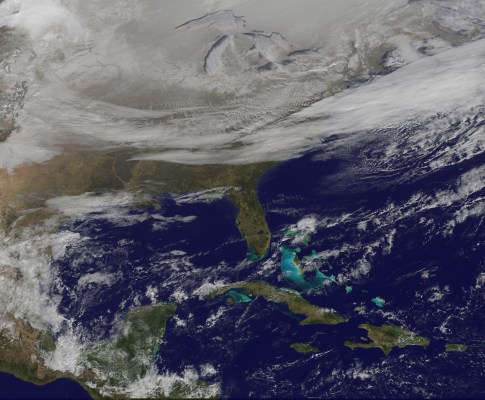ClimaCell, a weather forecasting technology that uses wireless networks to create incredibly granular predictions, has raised $15 million to develop new products and expand beyond the U.S.
The Boston-based company’s service has broad applications across government and business, offering ways to better prepare for the increasing number of severe weather events that are occurring worldwide.
“Nearly $3 trillion of the U.S. economy’s GDP is at risk due to weather every year and ClimaCell’s technology is poised to help verticals like aviation, insurance, financial services, logistics and defense change that,” said Rich Boyle, a general partner at the investment firm Canaan Partners, which led the new financing for ClimaCell alongside the mobility-focused investment firm Fontinalis Partners.
Founded by Ford Motor Company executive chairman Bill Ford, Fontinalis’ participation reveals how ClimaCell’s technology could play a key role in the development of another industry — autonomous driving.
ClimaCell currently sells a web-based interactive weather map, which provides street-level data on weather conditions and an API, which allows any company to access that map and build additional applications on top of it.
“Fontinalis invests in the most impactful companies across mobility,” said Chris Cheever, co-founder and partner at Fontinalis, in a statement. “ClimaCell’s cutting-edge technology enables the mobility industry to harness weather data in entirely new ways, driving operational efficiencies and unlocking new value for businesses in mobility sub-sectors such as aviation, connected cars, logistics, on-demand services, and many others.”
The company was founded by a former Israeli Defense Forces air force pilot, Shimon Elkabetz, who drew on his own weather-related near-death experience to launch the business. On maneuvers in Israel returning from a mission, Elkabetz flew into a foggy cloud-bank that his traffic control tower said should not be there.
He nearly lost control of the plane and definitely lost sight of the runway, Elkabetz recalled in an interview with Forbes.
From that experience, the Harvard Business School graduate began developing ClimaCell’s technology and services. The company uses information on the interference network providers are facing to determine what kind of weather a city is experiencing, according to Elkabetz.
